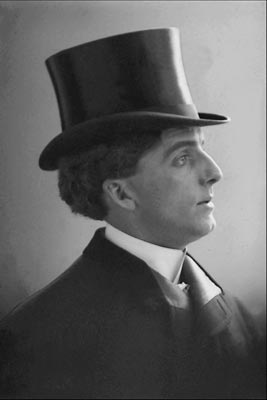
The character Maria in James Joyce’s “Clay” from Dubliners is a hard-working and good hearted woman in the story despite not living in the best circumstances. She is described as one of those people who everyone was “so fond of.” Maria did not have any real family of her own and worked in a laundry not really making that much money. The closest she has to family are two boys whom she nursed and raised as her own when she was younger named Alphy and Joe. The two boys saw her as family and thought of her like their own mother. Joe would say, “Mamma is mamma but Maria is my proper mother.” The effect that Maria had on these boys was great. In fact, it can be seen throughout the story that she had a warm and loving effect on basically everyone that she encountered. She had grown very close to the boys and it was obvious that she was sad that they no longer talked.
“She could not help thinking what a pity it was Alphy and Joe were not speaking. They were always falling out now but when they were boys together they used to be the best of friends: but such was life.”
Maria is kind hearted and always thinking about others even though she did not have that much money. Before a party she is going to, she stops by a cake shop and gets penny cakes for all of the children and then goes to a special store to get plum cakes for all of the adults. The plum cakes are “two-and-four” which is probably pricey for her. On the way to party on the train, a nice older man makes conversation with her. It makes her feel good to have someone pay attention to her because none of the young men on the train even noticed her. This is a sign that Maria is getting older and no longer attracts people at first glance. When she arrives at the party, she realizes that she has left the plum cake on the train and it deeply frustrated by this.
“At the thought of the failure of her little surprise and of the two and fourpence she had thrown away for nothing she nearly cried outright.”
Maria becomes extremely upset by the loss of the cakes and loss of the money. This lets us know that Maria does not buy stuff like that very often and that money that she spent is hard to come by. Maria’s attachment to both Joey and Alphy can be seen again when she asks Joe about Alphy. It hurts her to see that they are not talking any more since she is like a mother to them.
“Maria thought she would put in a good word for Alphy. But Joe cried that God might strike him stone dead if ever he spoke word to his brother again.”
Maria quickly makes her peace with Joe and drops the subject. She does not want anyone to have a bad time at the party. At the end of the party, she plays a game with the children. She is blind folded and asked to pick an object. At first she feels a “soft wet substance” but that object is thrown out because Mrs. Donnelly thought it was inappropriate. From the title of the story, we can know that this substance was clay from the garden. The next object she felt was a prayer-book. The significance of the game was that the object that was picked would tell your future. Maria picking the clay first probably shows that she will soon be in the clay and death is not far away from her. Maria is getting old and her life described in this story seems to be complete and satisfactory. Maria touched everyone around her even though she did have many possessions or family. She still had a great effect on those around her. The final scene shows the effect she has had on Joe when he is left crying after she sings.
“He said that there was no time like the long ago and no music for him like poor old Balfe.”



















